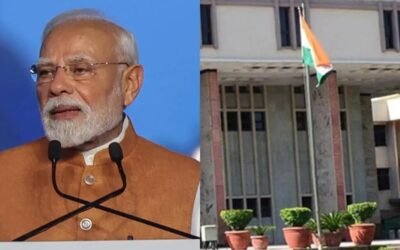On August 11, 2025, Washington delivered a verdict that has been a long time coming — the Balochistan Liberation Army (BLA) and its notorious suicide wing, the Majeed Brigade, have been officially designated as a Foreign Terrorist Organization (FTO) by the United States. This is more than a bureaucratic upgrade from the 2019 Specially Designated Global Terrorist (SDGT) label. It is a strategic recognition of what Pakistan has said for years: that BLA is not a political movement but a violent insurgent proxy, bankrolled and weaponized by external forces to bleed Pakistan from within.
U.S. State Department Declare BLA As Terrorist Group | Asia One News #asiaone #EnglishNews #asiaonenews pic.twitter.com/zLXfmCcvTY
— ASIA ONE NEWS (@AsiaOne_News) August 11, 2025
For Islamabad, this is a diplomatic and strategic victory. For New Delhi — whose covert fingerprints over the BLA insurgency have been an open secret in regional security circles — it is an uncomfortable moment. The game of plausible deniability is becoming harder to sustain when your pet proxy is now blacklisted in Washington’s own counterterrorism register.
From SDGT to FTO: Why the Upgrade Matters
In the world of counterterrorism, designations are not just symbolic. The SDGT label in 2019 was an important step, but it was primarily financial — freezing assets, limiting fundraising channels, and signaling awareness. The FTO tag, however, raises the stakes.
Under US law, it becomes a criminal offense for anyone in the United States to provide material support to the group — whether money, weapons, training, or logistical aid. It also allows the US government to prosecute those connected to the group abroad if they come under American jurisdiction. This widens the net, disrupts safe havens, and complicates the operational channels that such organisations often depend on through sympathetic NGOs, diaspora activists, or hidden intermediaries.
For Pakistan, this strengthens its legal and diplomatic position in demanding that other countries follow suit, cutting off funding and travel networks that the BLA has exploited in Europe and elsewhere. It also exposes the hypocrisy of those in Western capitals who have, until now, flirted with romanticised notions of “Baloch self-determination” without acknowledging the blood spilled in Karachi, Gwadar, and Quetta.
The US Just Acknowledged Pakistan’s Case
The State Department’s press release did not mince words. It cited the BLA’s suicide bombings near Karachi airport and the Gwadar Port Authority Complex in 2024, as well as the hijacking of the Jaffar Express in March 2025, which killed dozens of civilians and security personnel.

These are not abstract “insurgent” acts. They are acts of terrorism — indiscriminate, cruel, and targeted at Pakistan’s economic arteries. For years, Pakistan has presented dossiers, intercepted communications, and intelligence reports showing Indian support for these networks. And for years, the Western media narrative preferred to dwell on accusations against Pakistan rather than listening to Pakistan’s counterterrorism grievances.
This designation is not just about counterterrorism alignment — it is a tacit recognition that Pakistan’s intelligence claims have weight, and that the insurgency in Balochistan is neither spontaneous nor purely local.
Fitna al-Hindustan: A Proxy Exposed
It would be naïve to pretend that India’s strategic planners are indifferent to this announcement. The BLA has been, for all practical purposes, a convenient tool in India’s hybrid warfare toolkit — a way to keep Pakistan’s security forces stretched, its economic projects disrupted, and its international image tarnished.
But the FTO label changes the calculus. When the United States puts a group on that list, it forces its allies to think twice before engaging with or tolerating its operatives. Even indirect support — funneled through NGOs, think-tanks, or humanitarian cover — now risks exposure and diplomatic fallout.
This is why the designation is a loss for India. It closes the political space for pro-BLA lobbying in Washington, a space that Indian-aligned activists and PR firms have spent years cultivating. It also arms Pakistan with stronger arguments in multilateral forums, where New Delhi can no longer pretend the BLA is an “indigenous” resistance while the US calls it an international terrorist entity.
Asim Munir’s Visit: Diplomacy with Strategic Returns
The timing of this announcement is no coincidence. Field Marshal Asim Munir’s visit to the United States was more than a ceremonial attendance at General Kurilla’s retirement or diaspora dinners in Tampa. It was about resetting the optics of Pakistan-US engagement.
In a matter of weeks, Pakistan’s Army Chief met senior American military and political figures, underscored Pakistan’s counterterrorism commitments, and — crucially — reframed Pakistan’s security challenges in a way that resonated with Washington’s strategic concerns.
You May Like To Read: Police Martyrs’ Day Commemorated Across Punjab
For those in New Delhi scoffing at Munir’s high-profile meetings, the FTO designation is a direct counterpoint. It is evidence that Pakistan’s case was heard — and acted upon — at the highest levels. In the competitive arena of diplomatic signalling, this is not a small win; it is a statement of relevance.
A Strategic Inflection Point for Pakistan
This decision should not be over-celebrated as the end of the BLA threat — designations alone do not dismantle terror networks. But it is an inflection point. It gives Pakistan more tools to:
- Demand asset freezes in jurisdictions where BLA leaders have operated.
- Build legal cases for the extradition of suspects abroad.
- Push for similar designations from the EU, UK, and other partners.
It also puts the burden of proof on India to explain why, despite repeated Pakistani claims, its name keeps surfacing in connection with groups now officially recognised by Washington as terrorist organisations.
The Narrative Shift
In the long war of narratives, Pakistan has often been on the defensive, explaining itself to an international audience conditioned to view it through the lens of post-9/11 suspicion. But moments like this shift the burden. They validate Pakistan’s grievances and make it harder for detractors to dismiss them as “excuses.”
In discourse terms, this is the de-legitimisation of India’s preferred proxy in Balochistan. And once an actor is stripped of political legitimacy in Washington’s eyes, it becomes far riskier for any state to engage with it covertly.
You May Like To Read: Remembering Amjad Islam Amjad: A Voice That Still Echoes
Conclusion: From Recognition to Action
The FTO designation of BLA and Majeed Brigade is a strategic win for Pakistan on three fronts: operational, diplomatic, and narrative. Operationally, it disrupts some of the group’s international enablers. Diplomatically, it strengthens Pakistan’s counterterrorism partnerships. Narratively, it exposes the Indian hand in Balochistan before a global audience.
But victories in counterterrorism are never permanent. Pakistan must capitalize on this momentum — pushing for wider international sanctions, improving its own governance in Balochistan, and denying any space for the insurgency to regenerate.
For India, this is a diplomatic embarrassment — a reminder that the hybrid war it has waged in Balochistan can be exposed and countered. For Pakistan, it is proof that persistence, intelligence, and strategic diplomacy — the kind we have just seen in Field Marshal Asim Munir’s US visit — can deliver results even in the world’s most competitive geopolitical theatre.







